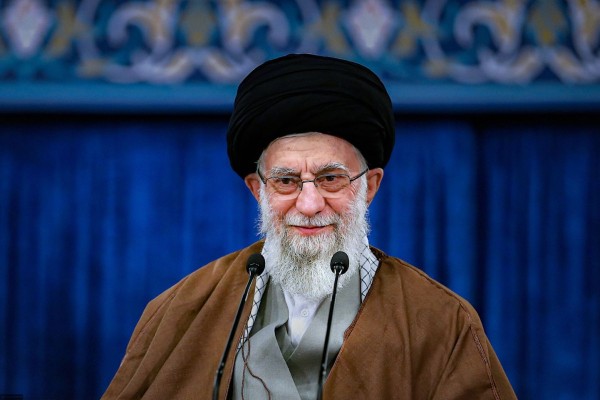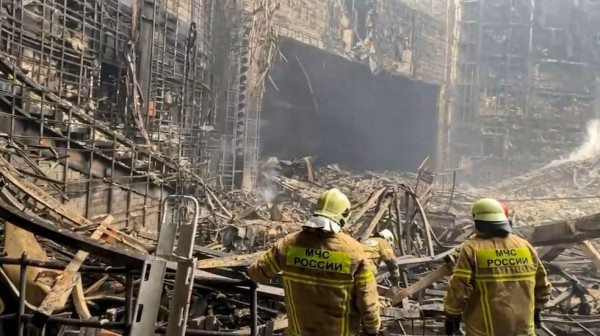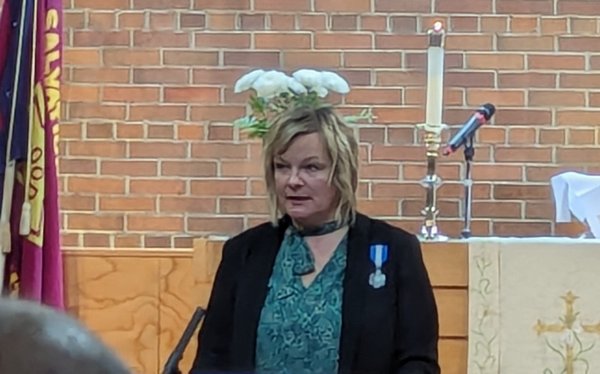At a recent colloqium, the Canada-Ukraine Chamber of Commerce provided a well attended forum, for lawyer Robert Amsterdam to present his opinions on the seriousness of the Kremlin’s open embrace of totalitarianism, especially its abandonement of the rule of law.
Amsterdam’s most well known client is Mihkail Khordokovsky, CEO of the Russian Yukos-Group MENATEP, who was sentenced in 2005 to eight years in jail. In 2009 Khodorkovsky appeared in court for a second trail for fraud and tax evasion. (Western medfia commentary insist his trail was staged, a convenient way for Vladinmir Putin to neutralize a political opponent.) By law no foreigner can argue before a Russian court and Amsterdam has been denied a visa.
Therefore Amsterdam presents his case on the international scene with all the attendant political ramifications. His legal colleagues say that Amsterdam is one of very few lawyers worldwide who’ll take on the state when the state starts acting like a crimional. He is known to thrive on handling politically difficult cases.
In reference to the Khodorkovsky case, Amsterdam says that Moscow “applied all its media powers to project the language of justice: They held him in shackles, placed him in a cage on television, and put on a good show trial where a judge pretends to listen to the defense as though the verdict would not arrive via a call from the Kremlin. This is what the Russians call ‘telephone justice’ “.
His experience is not limited to Russia. Amsterdam describes how Venezuelan president Hugo Chavez went on national television to attack a released political prisoner Eligio Cedeno and then demaded a 30 year sentence for the judge who ordered his conditional release.
For these countries’ autocrats, it is paramount that the media adopt their narrative and language to portray their enemies a criminal than it is to administer actual justice or prove a real case.
Before his Russia-related work, Amsterdam was internationally recognized through his victories in Africa and Latin America to which he has added cases in South East Asia and elsewhere. Formerly based in Toronto, Amsterdam works out of London and is much in demand internationally as a speaker, He is also the author of articles in major western newspapers and legal journals. His presentation at the CUCC colloqium was possible through Estonian-developoed Skype technology as Amsterdam himself was in Hong Kong during the session.
Amsterdam’s constant public companion is controversy. His “radical line of defence” includes the systematic denunciation of the political aspects of a case. Although the Yukos Group’s business dealings in Russia in the chaotic 1990s are well known, Amsterdam presents his client Khodorkovsky as a victim of Putin’s authoritarian regime. Amsterdam’s backers, however point to his defense of basic human rights and the right to free speech and enterprise.
The packed hall of Ukrainians were all too familiar with the political fate of people trapped in countries with Moscow friendly governments. Amsterdam’s message was all too stark for them. Amsterdam stressed that it is the responsibilty of central and eastern European communities in the west to keep western parliamentarians updated on the auhtoritarian developments in the former Warsaw Pact countries. Small communities in tandem with their larger counterparts will have substantial clout in bulding awareness.
The colloquim aso provided a dialogue for Amsterdam with members of a panel: Zenon Poticzny, president of the CUCC, Bohad Onyschuk and Lubomir Kwasnycia, CUCC executive members and Laas Leivat, Hon. Consul General Estonia.

Robert Amsterdam, Mikhail Khodorkovsky, Russia and rule of law under despotic regimes
Arvamus
TRENDING
























